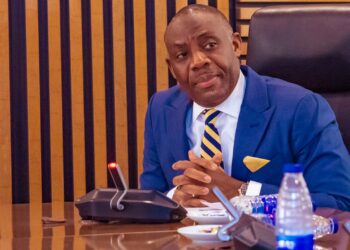The recent proposal by the Federal Government to extend the National Youth Service Corps (NYSC) scheme from one year to two years has caused conversations among educators, youth advocates and policymakers.
According to Dr Maruf Olatunji Alausa, the Minister of Education, this extension aims to deepen skills acquisition and tackle youth unemployment, which remain two of Nigeria’s most pressing challenges. While the proposal appears visionary, it also raises important questions regarding feasibility, purpose and long-term impact.
As an educator, I can appreciate both the potential benefits and the significant concerns that come with such a bold reform.
There is no doubt that Nigerian graduates need more than academic qualifications. They require practical and employable skills. Extending the NYSC period could offer a more structured and intensive experience, giving corps members time to acquire vocational and entrepreneurial training. With proper planning, this could help produce a new generation of job creators, rather than job seekers, thereby reducing the pressure on the limited formal employment sector.
Furthermore, serving for a longer period may allow corps members to make more meaningful contributions to their host communities. Those posted to schools, health centres and development projects in rural areas could initiate and complete more sustainable interventions. This extended engagement also has the potential to strengthen national unity by encouraging deeper cultural exchange and mutual understanding among young Nigerians from diverse backgrounds.
In addition, the proposal could include a second-year option that focuses on internships or apprenticeships, helping to bridge the gap between university education and practical work experience. This would better equip graduates for the labour market and improve their chances of gaining employment.
Despite these possible advantages, several concerns must be taken seriously. Increasing the NYSC duration would delay graduates’ entry into the workforce or their ability to pursue further studies. For many young Nigerians, this might feel like a disruption to their plans for personal and professional development.
Financially, such an extension would place additional pressure on the government’s resources. The NYSC scheme already experiences challenges in ensuring timely payment of allowances. Doubling the service period would require a significant increase in funding, and without a clear financial strategy, the move could be unsustainable.
Logistical challenges also pose a serious concern. The current NYSC structure is already burdened with inadequate infrastructure, limited accommodation and healthcare issues. Expanding the programme without addressing these existing shortcomings could worsen the experience for corps members and further strain the system.
Moreover, making a second year of service compulsory raises questions about fairness. Rather than enforcing the extension across the board, the government could consider making it optional. Those who wish to benefit from additional training and support could choose to enrol, and incentives such as job placements, business start-up grants or scholarships could be provided to encourage participation.
Before implementing such a major policy change, there must be broad consultation. Key stakeholders, including corps members, educators, employers and community leaders, should be part of the conversation. It is important to ask whether this policy truly serves the best interests of Nigerian youth and how it aligns with the country’s development goals.
In conclusion, while the aim of strengthening skills and addressing unemployment is commendable, the implementation of this proposal must be approached with careful planning, transparency and consideration for the diverse realities of young Nigerians. Our youth deserve a national service scheme that prepares them for the future without unnecessarily prolonging their journey into full adulthood and economic independence.

















































































 EduTimes Africa, a product of Education Times Africa, is a magazine publication that aims to lend its support to close the yawning gap in Africa's educational development.
EduTimes Africa, a product of Education Times Africa, is a magazine publication that aims to lend its support to close the yawning gap in Africa's educational development.
Thanks for this detailed and comprehensive piece. Intact,the minister of education should see this. I have never seen a writer so fair,balance and patriotic in his peice. Thanks EduTimes Africa,this reporter writes from a place of understanding and patriotism. Discuss the issues and provide solutions and sentiments.
Thank you so much for reaching out. Your words of commendation are encouraging and much appreciated. God bless you